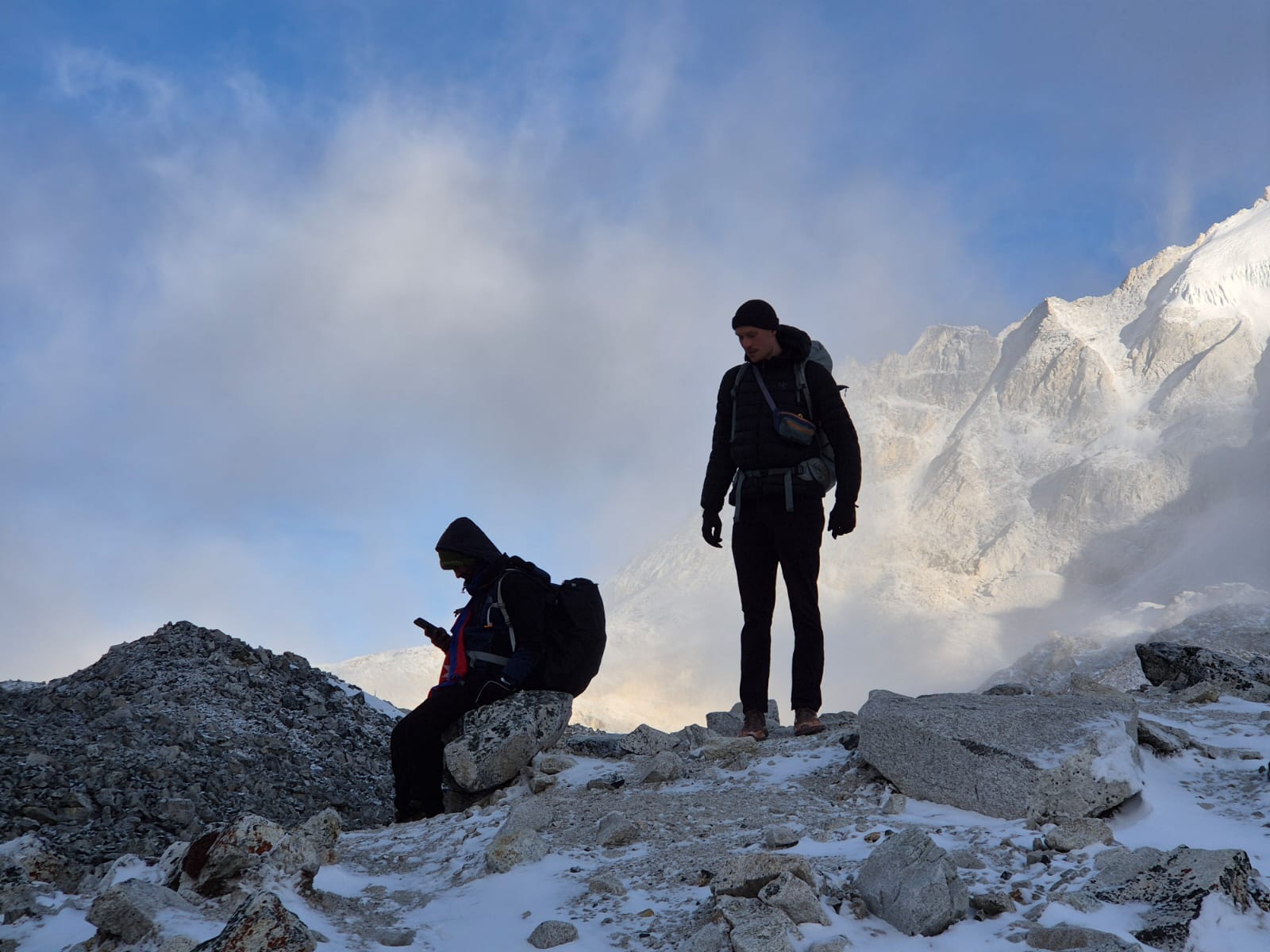Is the Everest Base Camp trek hard? This is one of the most common questions we receive and for good reason. The idea of trekking to the base of the world’s highest mountain sounds like a serious challenge. But the reality might surprise you.
With proper preparation and mindset, the Everest Base Camp (EBC) trek is achievable for most people with average fitness. You don’t need mountaineering experience or advanced hiking skills. Thousands of people, from teens to retirees, complete this iconic trail every year.
Let’s break down the real Everest Base Camp trek difficulty and what you should expect before lacing up your boots.
How Long Is the Everest Base Camp Trek?
The Everest Base Camp trek is around 130 km (80 miles) round trip. The standard itinerary takes 12 to 14 days, including acclimatization stops. Most days involve walking 5 to 7 hours through the stunning Khumbu Valley, starting with a flight to Lukla (2,860m) and trekking to Everest Base Camp (5,364m) and back.
Daily distance: 9–15 km
Average walking time per day: 5–7 hours
Highest altitude reached: 5,545m (Kala Patthar)
The real challenge isn’t the distance, but the altitude gain and reduced oxygen levels.
Everest Base Camp Altitude: The Main Challenge
As you ascend higher, the air gets thinner. At Everest Base Camp, oxygen levels are 50% less than at sea level. This is what makes the trek more difficult than it might seem on paper.
Some symptoms of altitude sickness (AMS) include headaches, fatigue, and shortness of breath. However, well-planned itineraries include rest days in Namche Bazaar and Dingboche for acclimatization, significantly reducing the risk.
Tip: “Climb high, sleep low” is a rule most trekking itineraries follow to help your body adapt.
Everest Base Camp Trek Technical Difficulty
Good news: There is no technical climbing involved in the Everest Base Camp trek. It is a long-distance high-altitude hike, not a mountaineering expedition.
You will walk on well-established trails, but some sections involve rocky, uneven, and icy paths. Trekking poles help with balance, especially on descents or slippery areas.
You don’t need ropes, crampons, or climbing gear just good trekking boots, warm layers, and endurance.
How to prepare for Everest Base Camp trek
While you don’t need to be an athlete, you do need to be fit enough to walk for several hours for 10+ days straight, often uphill.
Suggested Everest Base Camp Trek Training:
- Start 6–8 weeks before departure
- Do 4–6 hour hikes weekly (with a backpack)
- Add aerobic exercises like running, cycling, or swimming 3–4x/week
- Strengthen your legs, back, and core
- Practice walking with your daypack (5–7kg)
Goal: Be comfortable walking 5–6 hours a day on hilly terrain with a light pack.
Training improves stamina and reduces the risk of injuries or exhaustion on the trail.
When Is the Best Time to Trek to Everest Base Camp?
The best months for trekking to Everest Base Camp are:
- Spring (March to May) – Clear skies, rhododendron blooms, rising temperatures
- Autumn (October to November) – Crisp views, dry weather, cooler conditions
Both seasons offer excellent visibility of Everest, Ama Dablam, and Lhotse.
Avoid monsoon season (June–September) due to rain and winter (December–February) if you’re not comfortable with cold and snow.
Everest Base Camp Porters and Support
Trekking with an experienced team makes a big difference. Porters carry your duffel bag, so you only hike with a daypack (water, snacks, jacket, camera). This helps you conserve energy and enjoy the journey more.
Guides also monitor your health, pace, and route that makes the experience safer and more comfortable.
Is the Everest Base Camp Trek Hard? Final Thoughts
So, how hard is the Everest Base Camp trek? It’s challenging but not impossible. The key factors that affect difficulty are:
Factor Challenge Level
Distance Moderate
Altitude High
Terrain Uneven, rocky
Technical skill None required
Weather Cold at high altitudes
With proper acclimatization, basic fitness, and mental determination, the Everest Base Camp trek is a once-in-a-lifetime experience you can absolutely achieve.
Ready to Conquer the Everest Base Camp Trek?
Join one of TrekmaniaNepal's guided Everest Base Camp treks and hike with experienced guides and porters. We handle all the logistics, from Kathmandu to Base Camp and back, so you can focus on the journey and the majestic views.
Contact us today to reserve your spot or learn more about our group and private treks.


